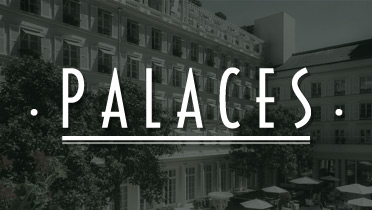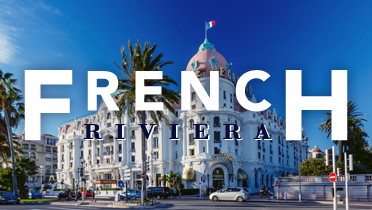United Republic Of Tanzania, Zanzibar
The Palms Zanzibar
The six villas of The Palms, on the peaceful southeastern coast of Zanzibar, nestled between gardens with the aroma of cloves and a white sandy beach, are a true haven of peace and serenity. Protected by roofs of makuti (palm thatch), these cottages with their local Swahili style architecture each bear the name of a spice, recalling the island’s rich past. Vast and luminous, the villas are decorated with elegance and refinement in a style that combines the island’s colonial heritage with local tradition. Each villa has a whirlpool bath on its terrace. A small path takes guests to their own “banda”, a small straw hut where they can spend the day on the beach in total privacy. The midnight blue mosaic swimming pool possesses a magnificent view of the Indian Ocean, and the restaurant offers a cuisine with a variety of different influences. The Palms is a luxurious heaven on earth in a dreamlike décor.
Zanzibar
Zanzibar, in the Indian Ocean, on the east coast of Africa, is an archipelago consisting of several coral islands, the main ones being Ungunja, Pemba and Mafia. Throughout history, Ungunja and its sister island Pemba, have attracted explorers from all over the world.
The name Zanzibar comes from the Arabic Zinj El Barr meaning the coast of the blacks. This is what Arab merchants called East Africa because of its Bantu population. Trade in spices, gold, incense, ivory and slaves made this archipelago a powerful state during the Middle Ages. From the 16th to the 18th century, Zanzibar was dominated by the Portuguese, then by the sultanate of Oman before becoming a British protectorate and then acquiring its independence in 1963. As a crossroads between Asia and Africa, its history is rich with Persian, Arabic, Indian and Chinese influences as well as Portuguese, Dutch and British. It was from here that the great European explorers such as Burton, Speke, Livingston and Stanley embarked to discover the African continent.
The heritage of these international influences can be seen in Zanzibar’s population, culture and architecture. In the old city of Stone Town, once administered by sultans, we can admire the doors of the old houses, beautifully carved and decorated with copper nails. Known for its white sand beaches and its transparent lagoons, Zanzibar also possesses lush vegetation, spice plantations for which it is famous and primary forests like Jazani where, with a little luck, you might come across the very rare red colobrus monkey.
Under the sign of the spices
On the peaceful southeastern coast of the island, between gardens with fragrances of cloves and a white sand beach, we find the six villas of The Palms, a true haven of peace and serenity. Protected by the makuti roofs, these cottages, with local Swahili type architecture, have names like hibiscus, cinnamon and clove, recalling the island’s past history.
Each villa measures 140 square meters, and is brightly lit and decorated with elegance and refinement in a style that cleverly combines the island’s colonial heritage with local tradition. The remarkable waxed parquet floors and the teak woodwork are highlighted by the white, beige, caramel and coffee colored tones of fine fabrics hovering around the large four-poster bed. Each villa has a private path leading guests to their own hut, or “banda” on the beach, covered with dried palm leaves, and long carved chaises lounges and day beds for enjoying a day at the beach without running into a soul.
An alternative to the beach is the deep blue mosaic swimming pool with four column beds, draped with the blue silk typical of Zanzibar, and with a magnificent view of the Indian Ocean. There is also the whirlpool bath on the terrace of each villa for private and total relaxation. After lazing around in one’s banda or diving in the turquoise water of the ocean, guests can be introduced to the game of bao, the ancestor of backgammon alongside the pool, or have a cocktail at the bar before going to dinner in the main house. There again, the blend of cultures in Zanzibar can found in the cuisine. Fresh fish caught the same day enhanced with spices grown in the archipelago and locally grown fruit make up the menu for a true taste of paradise on Earth.
The doors of the houses in the old city of Stone Town were elaborately carved and decorated to demonstrate the social status and prosperity of the owners. Merchants would rival each other with ostentatious signs of their wealth.
details about this hotel
Description:
Five stars / Elegance / Dining room with exotic cuisine / Bar / Outdoor swimming pool / Sanctuary Spa / Water sports club / Environmentally committed
When open:
Open all year
Number of rooms and suites:
6 private villas
Prices:
Double occupancy from 690 euros
Nearest airport:
Zanzibar Airport (ZNZ) - Kinauzi
Hotel details:
THE PALMS, ZANZIBAR
P. O. Box 1298
Zanzibar
Tanzania
details about this country
Flight time from Paris:
Approximately 10 hours
Time difference from Paris:
+ 1 hour in summer / + 2 hours in winter
Climate:
Tropical temperate climate inland and on the high plateaus
Humid equatorial climate on the coast
Necessary travel documents for French nationals:
Valid passport six months after return date
Visa required (purchased upon arrival or at an embassy)
No required vaccinations although yellow fever, typhoid and hepatitis A shots are advised
Currency:
The Tanzanian shilling (TZS)
Languages spoken:
Swahili, English and different local dialects
Book by phone
+33 1 75 43 70 26 *Our reservation department is always happy to assist you via phone or via email. We are open Monday to Friday 9am to 18pm (GMT +1).
- Best rates guaranteed
- Upgrade upon availability
- No booking fees
- Instant confirmation























